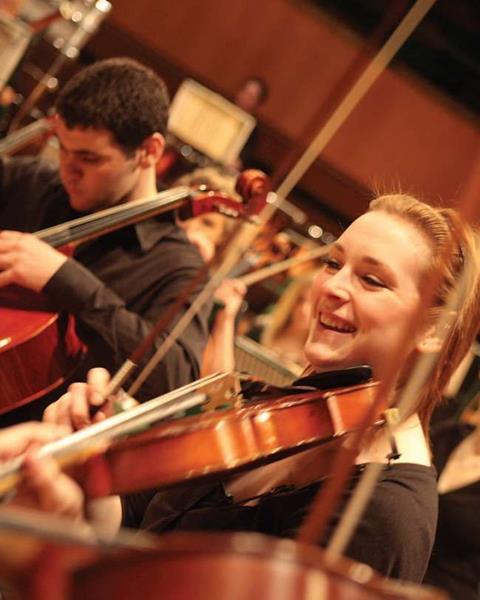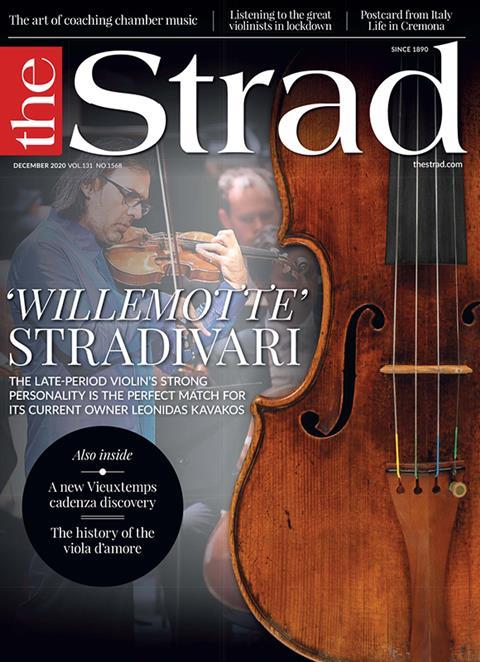Developing musical potential requires a real sense of critical awareness as students grow, writes cellist Cecilia Radic

Winding through years of practice, lessons, masterclasses, concerts, uplifting emotions and frustrating setbacks, the journey towards becoming an accomplished musician is among the most inspiring. It is also one of the hardest, and many precocious talents get lost along the way. Sadly, a high number of enfants prodiges never blossom.
Musical achievement requires more than sheer talent. Factors like one’s background, family, teachers, encounters and, obviously, luck play an important role, but often they do not suffice. What is it, then, that causes so many highly gifted individuals to fall behind other eventually, apparently less talented, peers? After many years of teaching, I believe the answer often lies in these students’ inability to develop a key aspect of their playing – consciousness.
Young talents learn very quickly through instinct and imitation. This extraordinary blessing, however, can turn into a curse. As the time comes for them to make musical and technical choices, what they often lack is consciousness – that critical self-awareness that lies at the heart of an outstanding interpretation, and consists of absolute clarity about the piece’s what and how.
Becoming conscious of a score’s what means gaining a deep understanding of its emotional and historical context, and making that understanding inspire every interpretative choice. Being conscious of the how means identifying and developing the technical skills required to deploy those choices. In the absence of the how, the what alone remains a set of unrealised ideas. Conversely, a how without a what amounts to a dry display of technical proficiency. Exceptional performers don’t just build an impeccable technique; they also shape their unmistakable style with consciousness.
Attending a masterclass as a young cellist, I was captivated by the beauty of the teacher’s interpretation, and strove to imitate it. But I had no clue what made those choices necessarily right, and – most importantly – right for me. Youthful intuition creates potential, but only true consciousness can realise it.
Read: Opinion: Original and the best
Read: Opinion: Jedi Wisdom for string playing
Read: Opinion: Wise words
To develop that consciousness, here is one approach that I have used with excellent results. Ask students to describe the emotion they want to convey, or the image they wish to conjure through the piece. Make them think of the piece as a means to an end. Helping them to think carefully and settle on an overall vision for the score – a place and time, a feeling, or even a narrative – is a crucial first step towards improving their consciousness.
This simple but effective approach comes from my experience in youth orchestras under the baton of Mstislav Rostropovich. He wasn’t only an immensely charismatic figure; he was also a master at conceiving inspiring images that every member of the orchestra could ‘get’. (I can still recall playing the Largo in Shostakovich’s Eighth Symphony to evoke a desolate Russian landscape). This exercise never failed to shift the orchestra’s performance – more so than any number of rehearsals.
Sometimes I will ask my students to approach a piece ‘top down’ rather than ‘bottom up’ – starting by looking at the piece as a whole rather than getting familiar with an instrumental line in isolation. What is the overarching vision? The many choices of fingerings and bowings should not override the importance of the music’s mood. Another effective exercise is playing a piece in a different key and feeling, and describing the change. This basic intervention can be an eye opener, revealing the piece’s emotional drive. Collective lessons also provide an excellent setting for students to explore a score, make choices, overcome technical difficulties and, ultimately, learn what it all sounds like to others.
The above are just a few examples of how young musicians can grow their awareness. Developing consciousness is a journey into musical selfhood, leading young performers to bloom into independent, unique players – and realise their full potential.
-
This article was published in the December 2020 ‘Willemotte’ Stradivari issue
The late-period violin’s strong personality is the perfect match for its current owner Leonidas Kavakos. Explore all the articles in this issue. Explore all the articles in this issue
More from this issue…
- The 1734 ‘Willemotte’ Stradivari violin
- A newly discovered Vieuxtemps cadenza
- Coaching chamber music for school-age students
- Amandine Beyer on recording C.P.E. Bach’s string symphonies
- The history of the viola d’amore
- Evolving interpretations of the great vioinists
Read more playing content here
-












































No comments yet